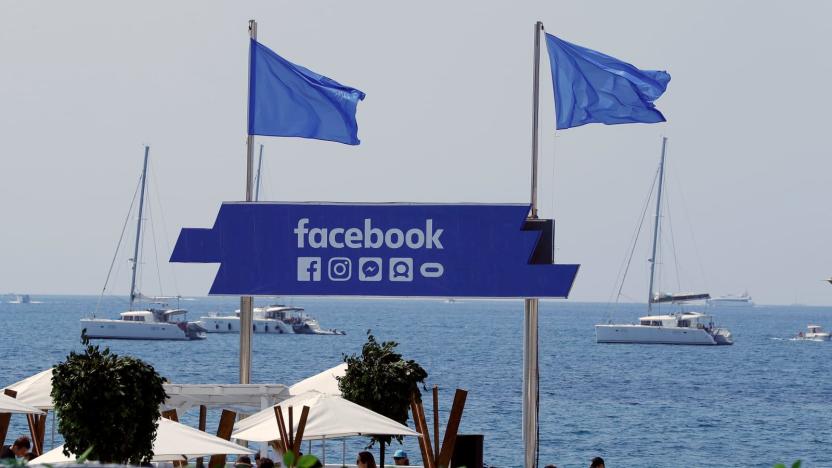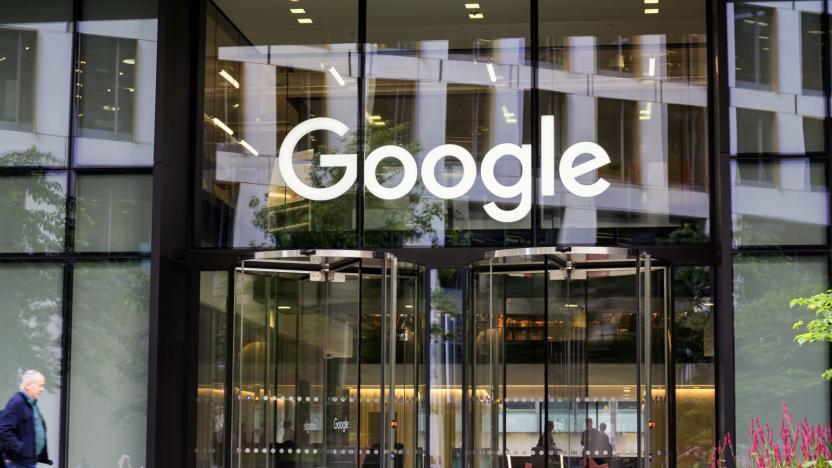ConsumerProtection
Latest

Senator Wyden wants to jail execs who don't protect consumer data
Sen. Ron Wyden (D-OR) released a draft the Consumer Data Protection Act, which would create new protections for consumer information and strict punishments for those found to be abusing user data. The proposed bill would send senior executives to jail for 10 to 20 years if they fail to follow the guidelines for data use.

Trump administration suggests firmer controls on data privacy
The National Telecommunications and Information Administration (NTIA) has laid out the Trump administration's approach to bolstering data privacy. The agency is seeking to strike a balance between increased consumer protection and affording companies room to innovate with its proposals, which could lead to a US version of the EU General Data Protection Regulation (better known as GDPR).

EU: Facebook and Twitter must do more to protect users
New changes made by Facebook and Twitter to their terms of service still don't conform to the EU's demands to protect consumers, the European Commission said. Specifically, the social networks haven't properly told users why content is removed and that they have the right to terminate their accounts. On top of that, the companies still aren't saying how quickly they'll deal with requests from authorities to pull down harmful content.

FTC may investigate TripAdvisor over deleted posts, but it isn't yet
Earlier this month, the Milwaukee Journal Sentinel reported that TripAdvisor had deleted multiple posts from users warning others about incidents of assault and rape that had taken place at a certain resorts in Mexico. Since then, the journal says that dozens of others have come forward with similar stories. Now, it reports that the Federal Trade Commission (FTC) is looking into the website's business practices.

Missouri AG wants to know if Google broke consumer protection laws
The attorney general's office of Missouri has announced it's investigating whether Google broke the state's consumer protection and antitrust laws. AG Josh Hawley's statement expressly questioned the search giant's practices regarding collection of user data, potential content taken from competing websites and preferencing companies it owns in search results.

Net neutrality expert Tim Wu joins New York attorney general's office
After running for lieutenant governor and serving as a special adviser to the Federal Trade Commission, the man who coined the term "net neutrality" has a new gig. Tim Wu, a professor at Columbia Law School, will take a sabbatical to join the New York attorney general's office as senior lawyer and special adviser to Attorney General Eric Schneiderman. Wu will work on matters of consumer protection and fair competition when it comes to technology. More specifically, issues facing companies that do business over the internet. "If I have a life mission, it is to fight bullies," Wu said in an interview. During his tenure, Schneiderman has dealt with issues concerning internet-based companies like Airbnb and Lyft in addition to advocating for stronger anti-theft features on smartphones. [Image credit: AP Photo/Seth Wenig]

Nigerian telecoms to face jail time over shoddy cell service
Nigeria's Consumer Protection Council (CPC), with the backing of the country's government, is threatening to throw telecom executives in jail unless they improve their call quality. The African nation has seen mobile phone adoption rates soar over the past four years thanks to a price war that has dramatically lowered prices. That may seem like a win for consumers but, in fact, the increased user base (combined with the telecoms' general unwillingness to invest in their infrastructure and capacity) has rendered many cell services nearly unusable. The CPC argues that network congestion and dropped calls are so common that it's starting to cost consumers money. What's more, regulators recently performed Quality Assurance tests (QAT) for operators throughout the region and failed to find a single one that actually achieved the connection promised in their consumer service agreements.

Apple facing European investigation into how it sells AppleCare
Ever hemmed and hawed over buying AppleCare with your shiny new gadget? European chiefs are worried that you don't know all of your rights. They're concerned that Cupertino's warranty-selling practices hide the fact that all customers are entitled to a statutory two-year warranty to fix defects present at sale. The company has already had to open its checkbook to Italian regulators, but pointed out that the protection plan is there to remedy issues that may crop up after you've taken your new toy from its perfectly-engineered box. Nevertheless, commissioner Viviane Reding is pushing for a Europe-wide inquiry into the company, contacting all 27 member states to look into the matter. In the meantime, we're left working out how many times we're likely to drop our new device in the next three years.

Apple accused of misleading EU customers about warranties
The Portuguese Association for Consumer Protection, DECO, is unhappy with Apple's representation of the European Union's warranty policy. DECO has filed a lawsuit accusing Apple of misrepresenting the EU's warranty policy in a way that encourages customers to buy the company's optional and pricey AppleCare warranty. The lawsuit cites statements like the one found on Apple's website which says the EU's two-year consumer protection law only covers defects present at the time of delivery. According to a report in The Verge, the EU's warranty policy covers any defect that occurs within this two-year timeframe. Apple is facing a similar suit in Italy that threatens to shut down retail sales for 30 days in the country.

Australian court fines Apple $2.27 million over '4G iPad' claims
It's a good thing Apple has that huge cash reserve, as the company is going to have to fork over a lot of money Down Under for "deliberately" misleading Australians about the 4G capabilities of the new iPad. The Australian Competition and Consumer Commission (ACCC) brought an action against Apple, saying that the company misled Australians by advertising new iPad connectivity with 4G networks in Australia. An Australian Federal Court judge agreed with the ACCC and as a result of the settlement, Apple will pay AUS$2.25 million (about US$2.27 million) in fines as well as AUS$300,000 in court costs. In March, Apple offered to refund customers who felt that they had been misled by the advertising, and they also published a clarification of the actual capabilities. Outside of North America, the new iPad is now advertised as "Wi-Fi + Cellular". Australian advertising specifically states that the device "is not compatible with current Australian 4G LTE and WiMax networks." News of the proposed settlement first surfaced about two weeks ago; the latest statement from the Australian courts fixes the amount that Apple will be fined. Similar consumer protection suits may follow in other countries now that the ACCC has successfully sanctioned Apple. [via Engadget]

Swedish Consumer Agency considers investigation into iPad 4G LTE marketing
The Swedish Consumer Agency is thinking about investigating whether or not Apple's marketing of the new iPad's 4G LTE connectivity is misleading. The agency has apparently received "several complaints" from consumers who have discovered that the new device doesn't work with the 4G LTE networks in Sweden. The new iPad supports LTE on the 700 and 2100 MHz frequencies, while in Sweden, 700 MHz is used for television broadcasts and 2100 MHz is used for 3G data. The only countries at this time that support LTE on 700 and 2100 MHz are the U.S. and Canada. Marek Andersson, an attorney for the Swedish Consumer Agency, said that "One may rightfully ask if the marketing of the new iPad is misleading ... the question is whether this information is clear enough in Apple's marketing." Apple is under fire for the same marketing concern in Australia, where the company has agreed with the Australian Competition and Consumer Commission to clarify the claim that the new device supports 4G LTE and to refund early adopters of the new iPad who feel that they were misled.

US Supreme Court says companies can force arbitration on class-acting consumers
Before today, Californian consumers were free to ignore the arbitration clause tucked in the fine print of every AT&T service contract because state law had declared them unconscionable -- which kept the courthouse doors open to class-acting consumers. However, in a ruling that no doubt pleases AT&T and others of its ilk, the highest court in the land has stripped the states of their power to so avoid arbitration with its ruling in AT&T Mobility LLC v. Concepcion. In an opinion penned by Justice Scalia (pictured), the Supremes said that the Federal Arbitration Act was passed to promote arbitration's quick and easy dispute resolution, and they couldn't have California (or any other state) contradicting the will of Congress by allowing lengthy group litigation when parties already agreed to private arbitration. That means companies are free to force customers to arbitrate their claims individually instead of joining together to file high-dollar class-action lawsuits, no matter what state laws say. Guess those large-scale litigation lawyers will have to look elsewhere to find the funds for their next Ferrari.

PS3 owners eligible for cash refund after 'Other OS' removal?
Admit it, most of you don't use the "Other OS" option on your PS3, do you? That's ok, we don't either, at least not regularly. Nevertheless, it's irksome, nay, vexing that Sony had the audacity to pull it; that feature was part of the deal bargained when we purchased the unit after all. Forum moderator, "lapetus," over at NeoGAF decided to take on the man by invoking European directive 1999/44/EC, a consumer protection law that requires goods to be "fit for the purpose which the consumer requires them and which was made known to the seller at the time of purchase." That little tactic earned lapetus a refund of £84.00 from Amazon without physically returning the console even though his (?) PS3 was well out of warranty. Oh just you never mind that Sony's user agreement claims the ability to revise settings and features without limitation to, "prevent access to unauthorized or pirated content, or use of unauthorized hardware or software in connection with the PS3 system." In other words, request your refund before installing Geohot's hacked 3.21 firmware.










